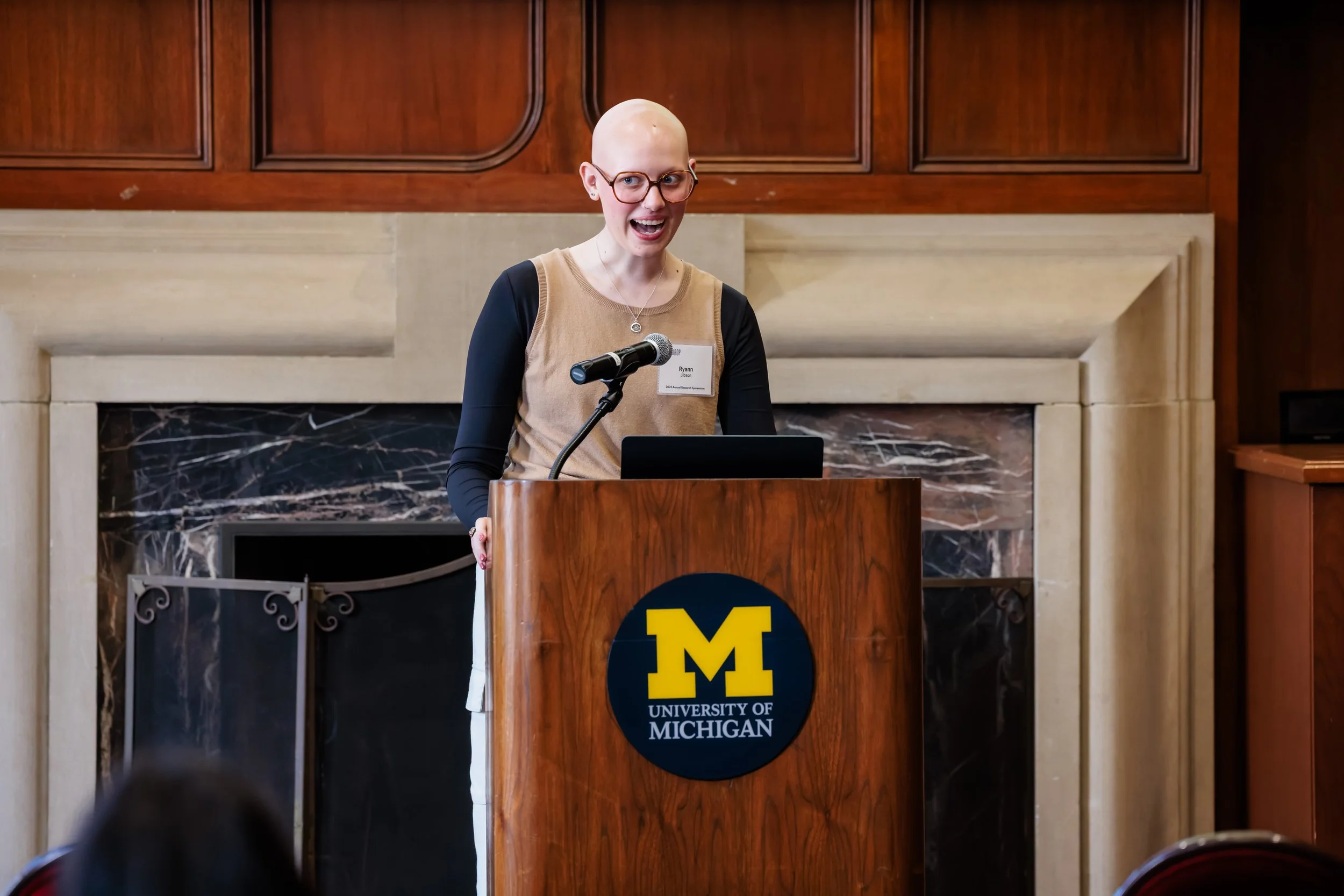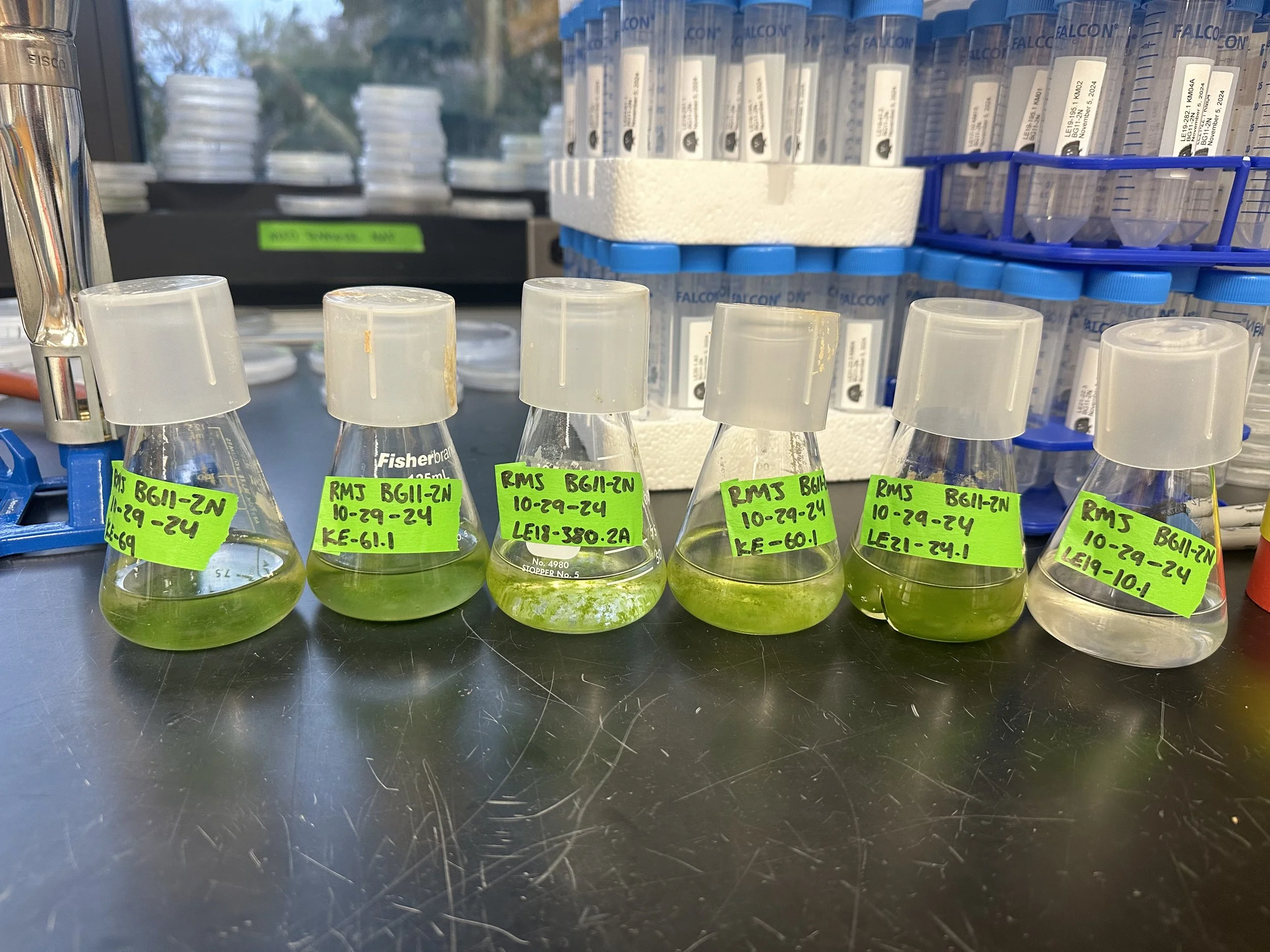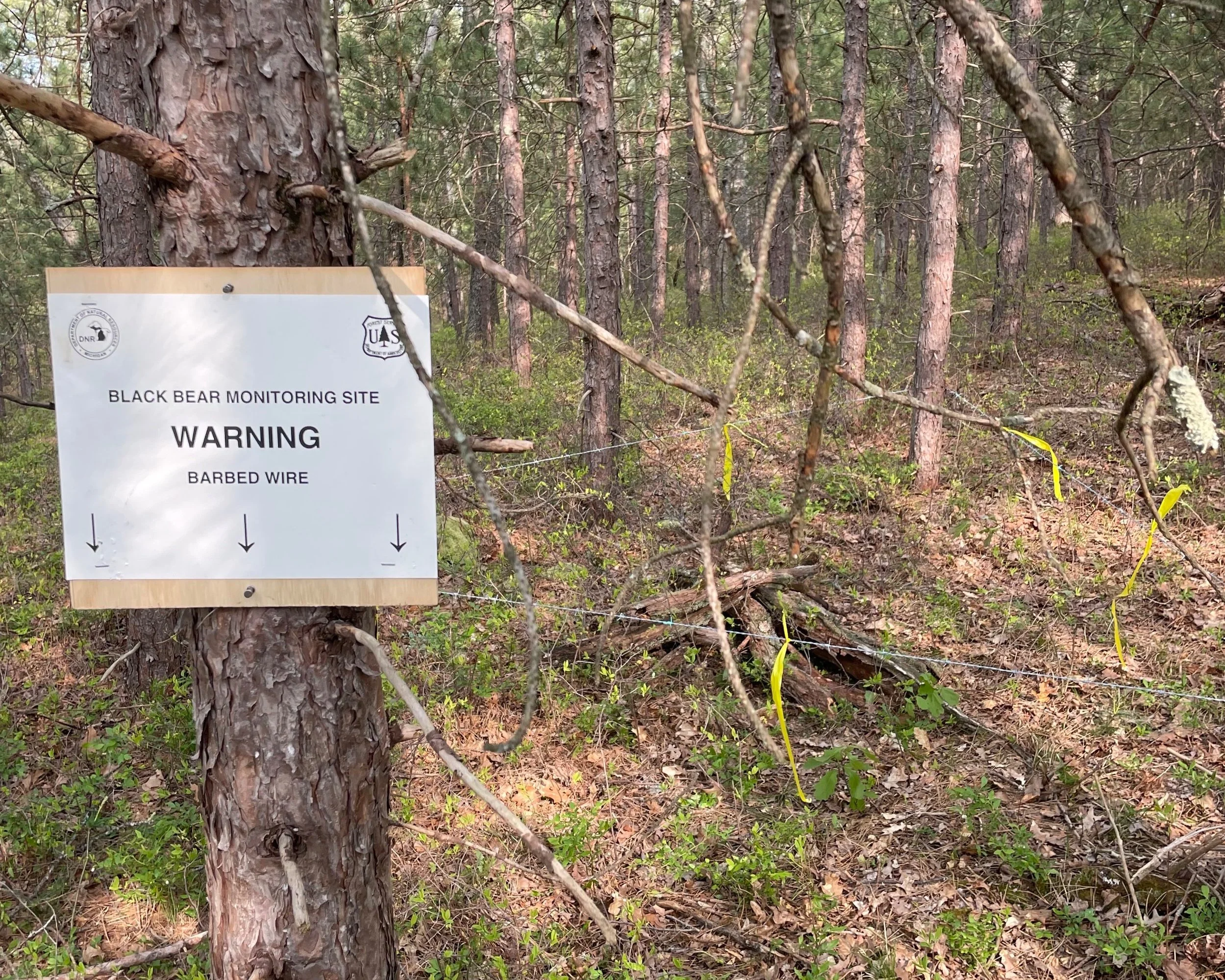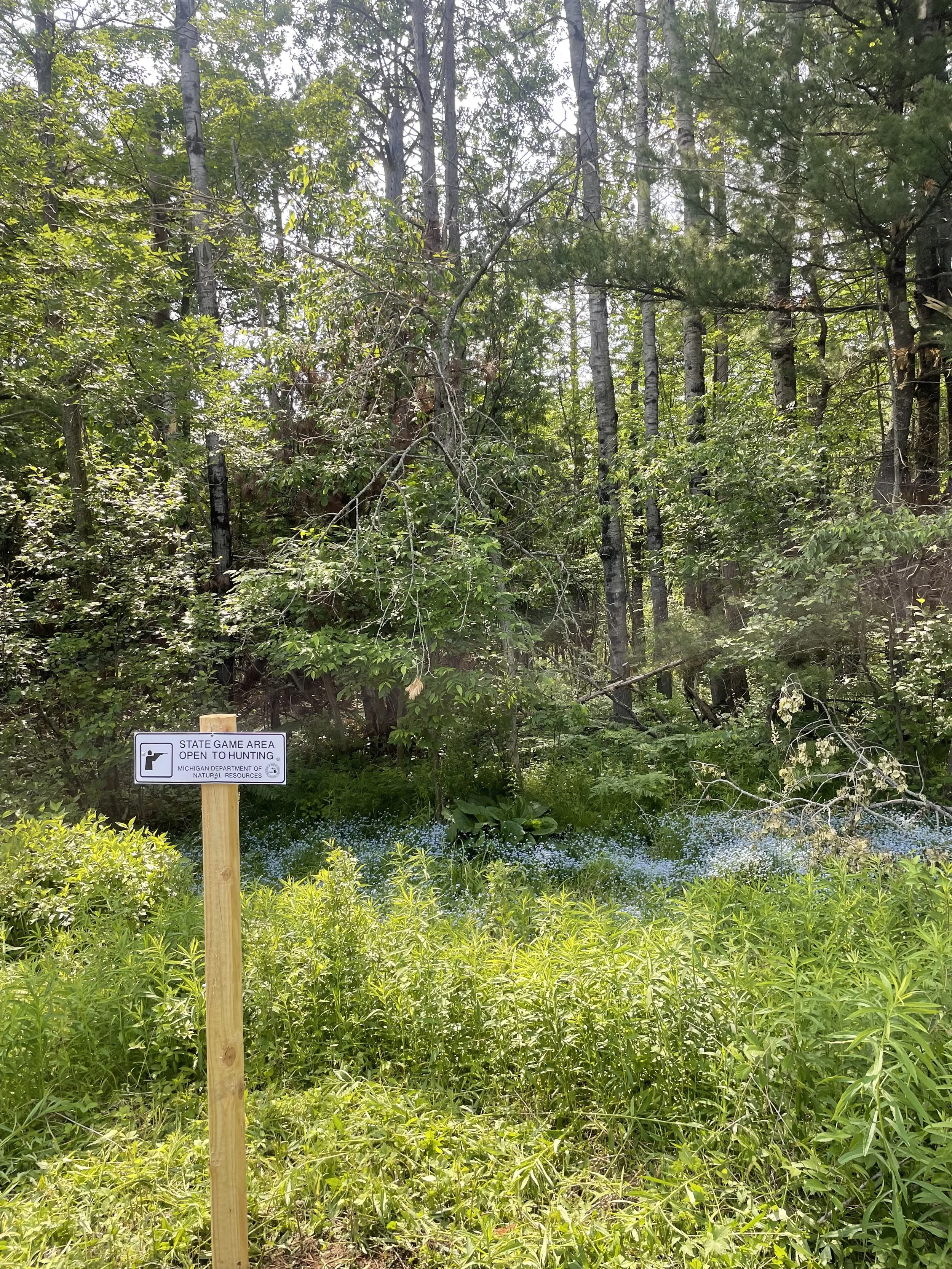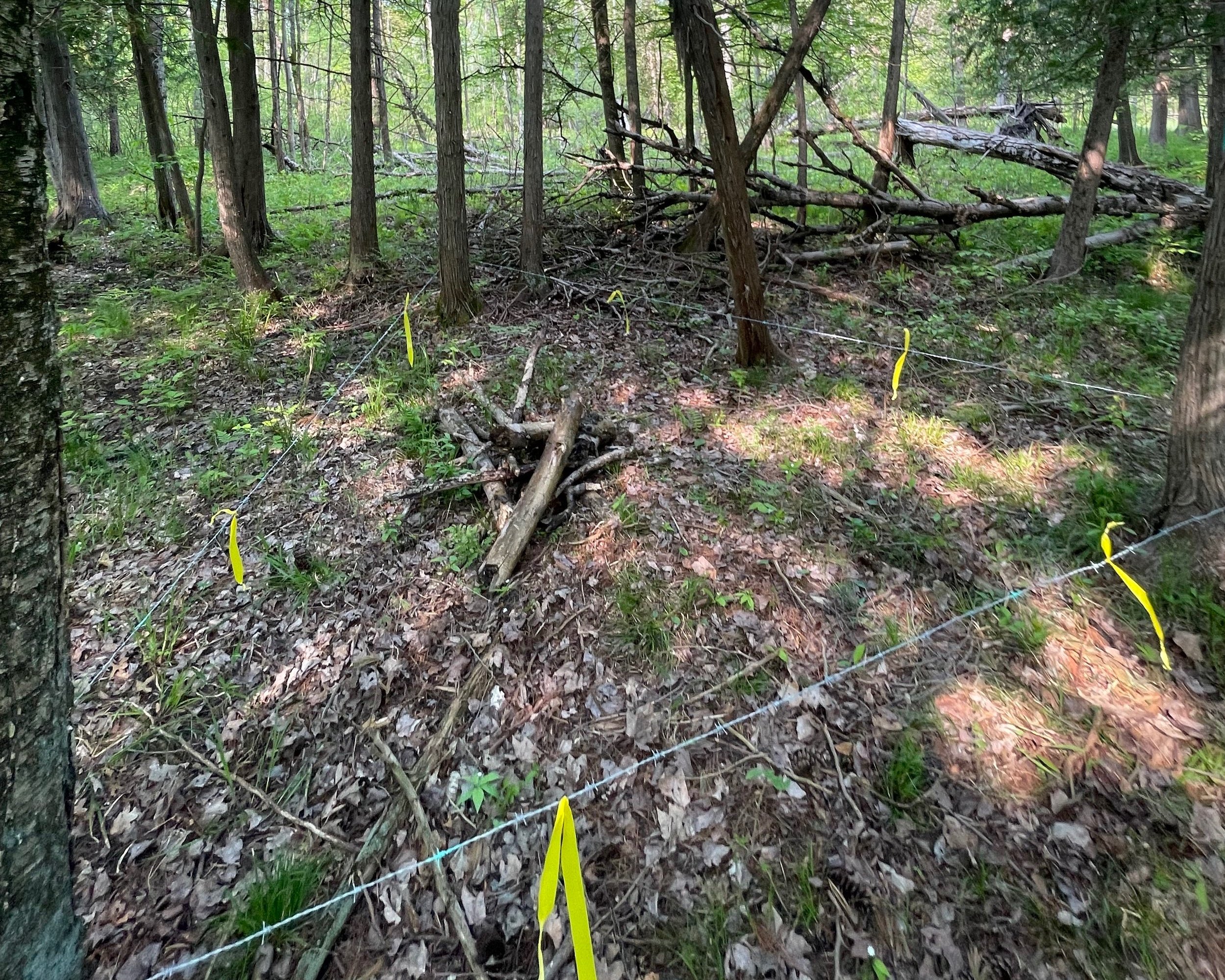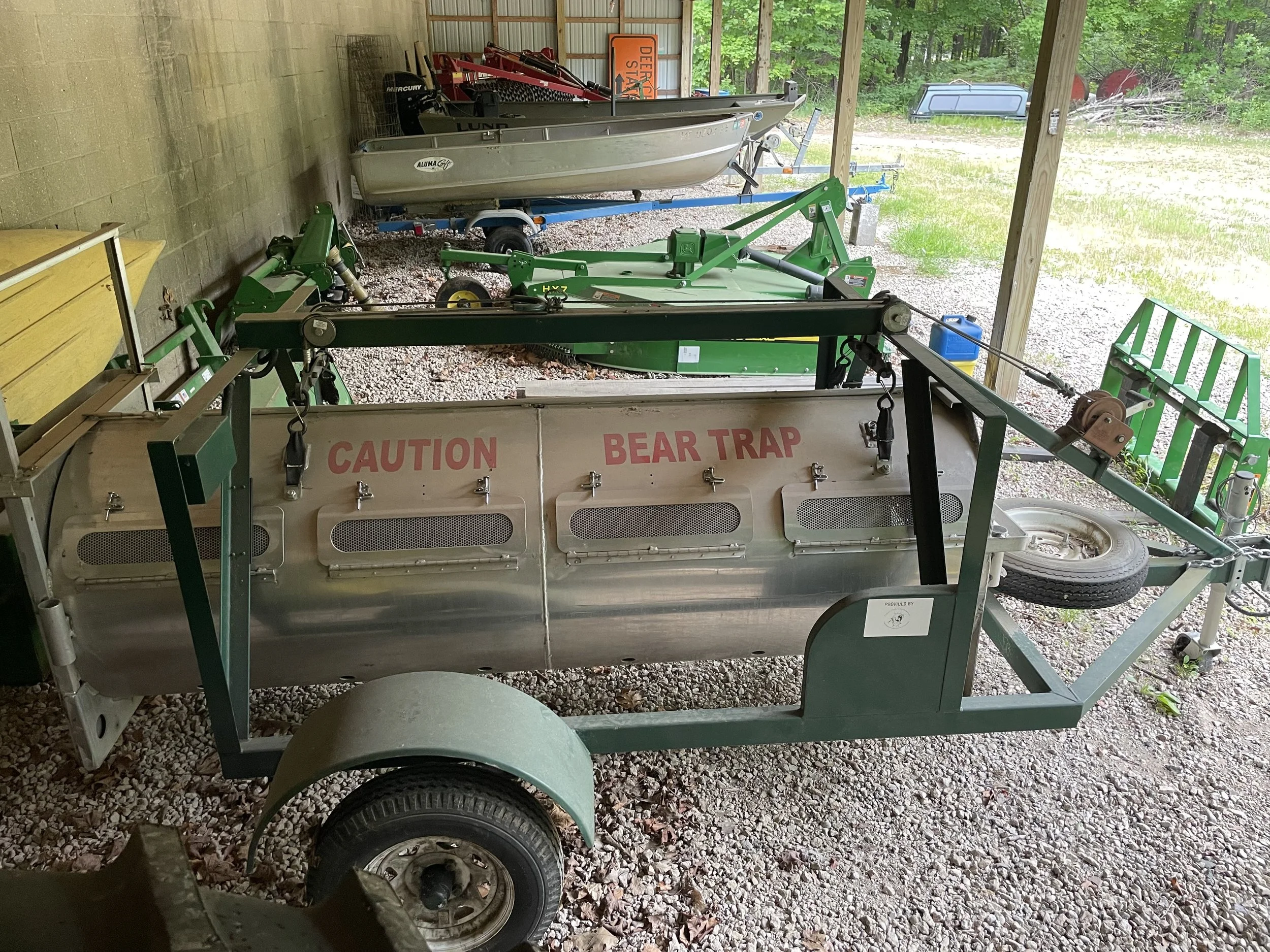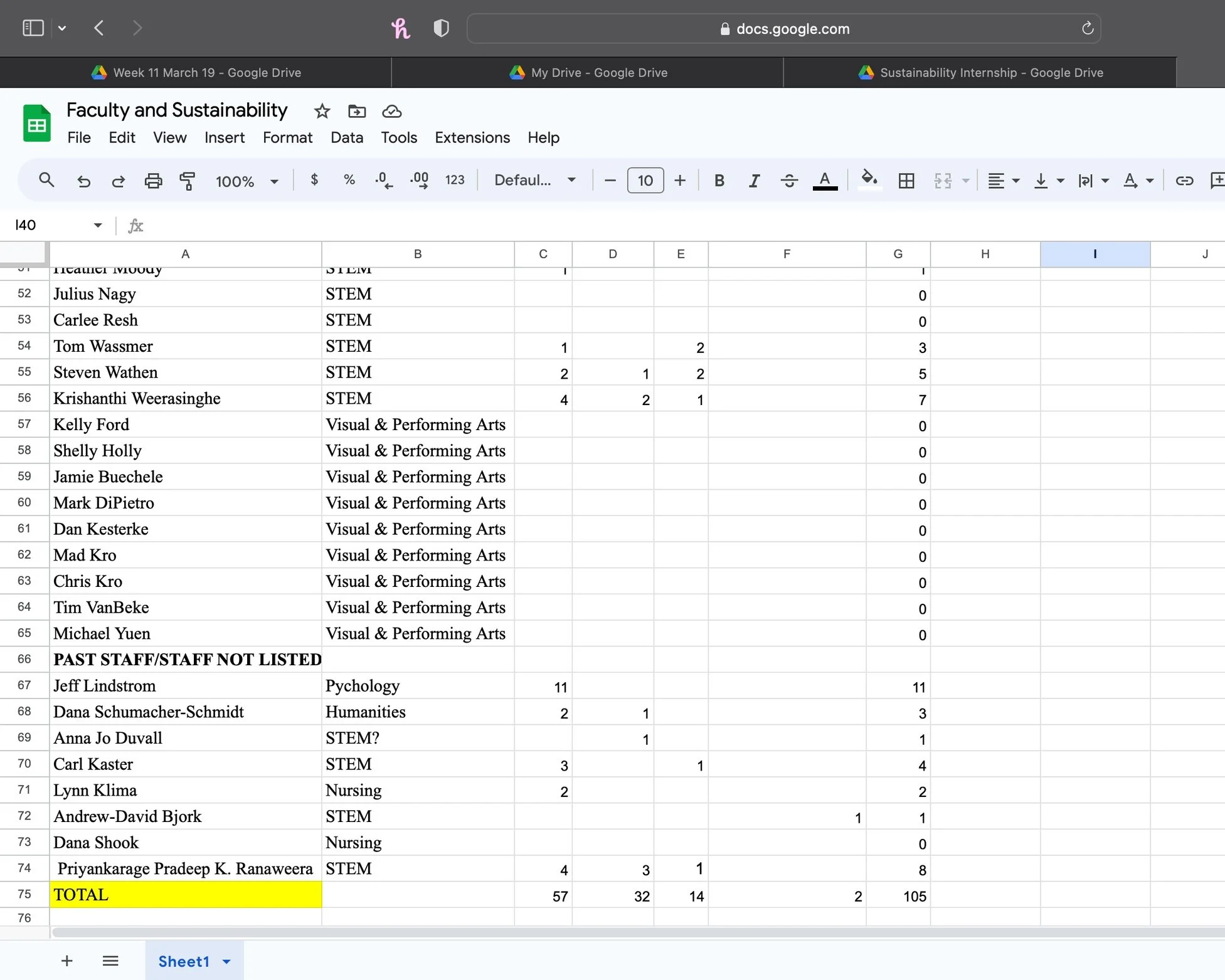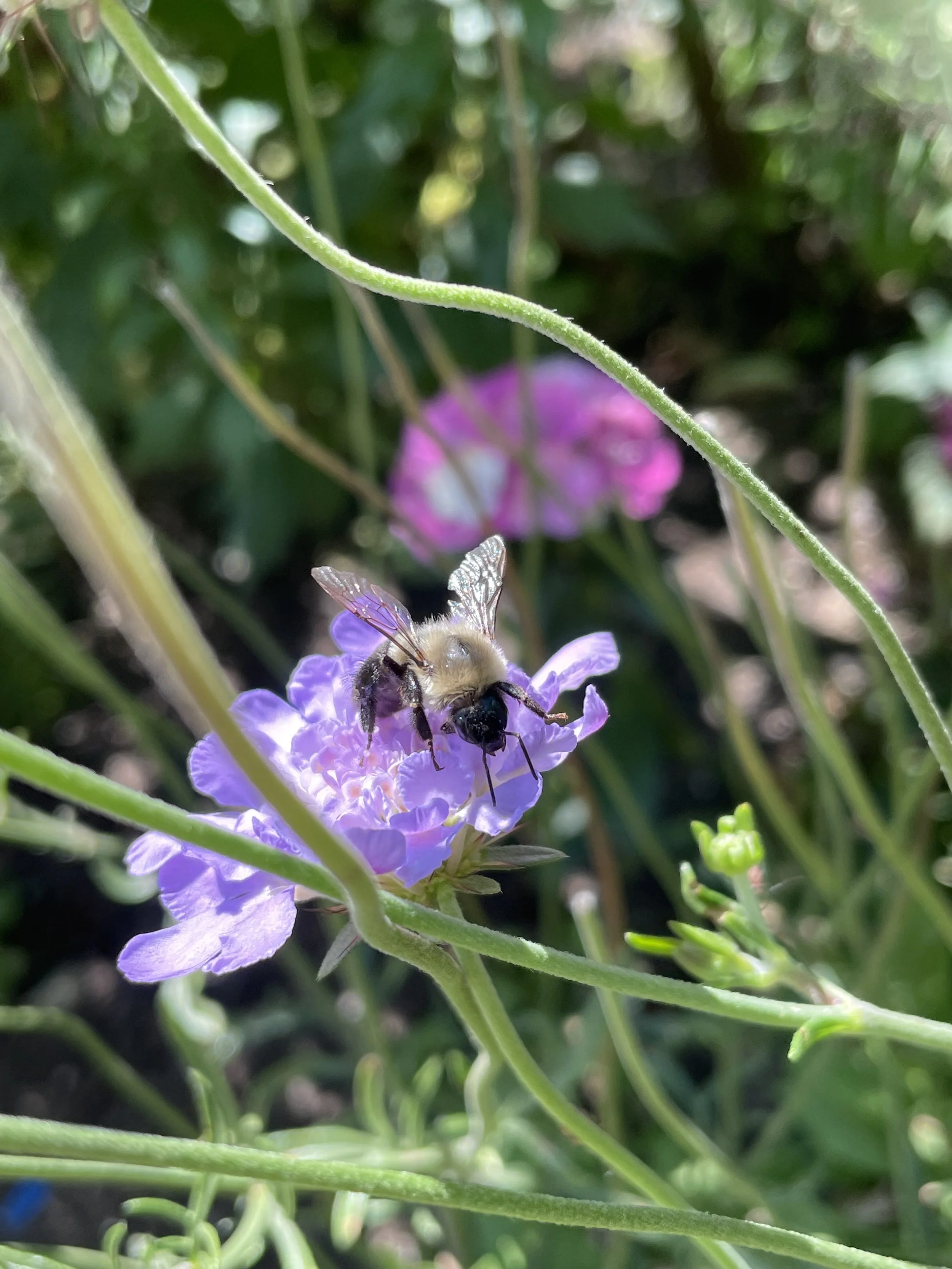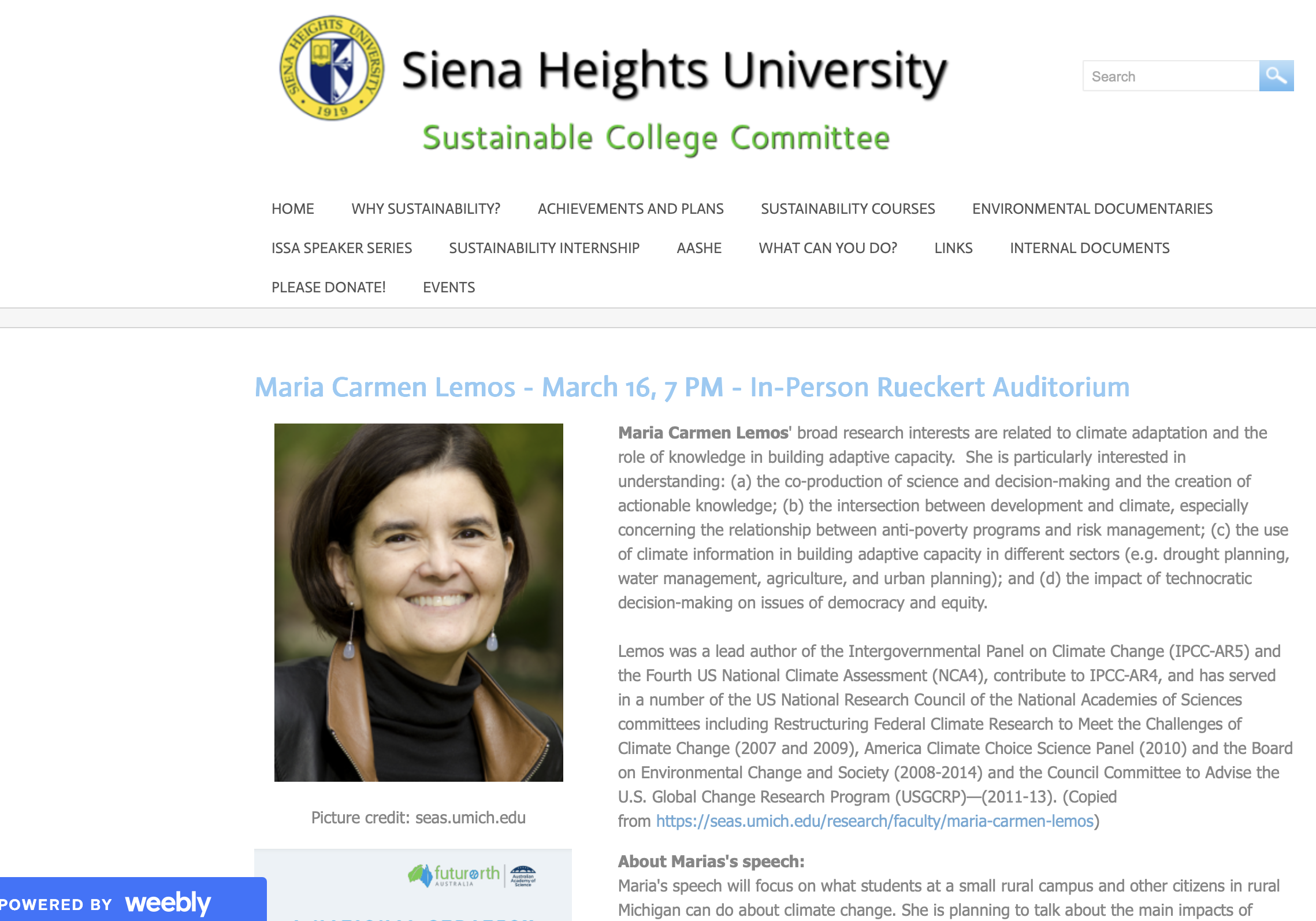Research Interests
Limnology, Aquatic Toxicology, Microbial Ecology, Nutrient Cycling, Soil Contamination, Freshwater Ecology
Michigan Geomicrobiology Lab
The University of Michigan's strong commitment to research and experiential learning beyond traditional classroom settings was a key factor in my decision to attend the institution. Upon acceptance, I promptly began seeking out research opportunities and was fortunate to be accepted into the Undergraduate Research Opportunity Program. This program provided valuable guidance in connecting with labs aligned with my interests.
I found an instant connection with the Michigan Geomicrobiology Lab. Alongside principal investigator Greg Dick, the lab takes a multi-omic approach when investigating cyanobacterial harmful algal blooms.
The Michigan Geomicrobiology Lab is home to the Western Lake Erie Culture Collection (WLECC), which features a significant number of Microcystis aeruginosa strains isolated from Lake Erie. My initial role within the lab involved expanding this collection through rigorous methodologies such as aseptic isolation, colony morphology analysis, and genomic studies. I successfully added 8 new cultures to the WLECC, in addition to isolating 7 cultures from Lake Victoria, Kenya, a pioneering achievement. Click on the poster to the right to learn more.
My senior year I was able to collaborate with Jenan Kharbush, principal investigator of the Kharbush Lab, to conduct an experiment on nitrogen forms and their influence on what intracellular metabolites Microcystis aeruginosa produces. This experiment introduced me to the growing field of metabolomics. Read my senior thesis on our initial findings here!
MI DNR Bear Hair Survey
Every five years, the Michigan Department of Natural Resources collaborates with Michigan State University's Diagnostic Center for Population and Animal Health to conduct monitoring and tracking of the Black Bear population in Michigan. I had the opportunity to participate in these surveys in the summer of 2023.
In the spring, I was assigned to set up snares at twelve predetermined remote locations based on past bear activity. Barbed wire was positioned around three trees at a height of 20 inches, with a pile of logs placed in the center. Various lures were utilized to attract bears to the area for hair collection. Each week, the snares were reset and any hair found was carefully collected for genetic testing.
Detailed notes were diligently recorded for each site, whether or not samples were obtained. The preliminary findings of the survey, along with harvest data, have been released to the public. In the Northern Lower Peninsula, where I conducted my research, a 55% increase in the bear population over the past decade was noted. This corresponds with the rise in reports of nuisance bears, and this concrete data can support the implementation of new protocols, such as an increase in permits.
The survey also aids in tracking the movement of bear populations throughout Michigan, providing valuable information for the DNR to enhance field stations and affected areas. Participating in such a significant study was an enriching experience, and it is satisfying to see the results yield beneficial insights in a timely manner. View crude resultshere.
AASHE STARS Data Collection
During my time at Siena Heights University, I had the opportunity to serve as a 'Sustainability Intern' under the guidance of Jun Tsuji, Ph.D., and Tom Wassmer, Ph.D. I was involved in data collection for the AASHE STARS program–Association for the Advancement of Sustainability in Higher Education. This program aims to promote sustainability in higher education institutions globally.
My role involved gathering data about SHU's sustainability practices to assess our current efforts and identify areas for improvement. This included examining operational processes, administrative procedures, curriculum integration, and more. After completing my data collection, SHU achieved a bronze rating. In response, I developed a paper outlining proposed solutions and presented it to campus leaders.
One of the initiatives we implemented to enhance campus sustainability (in addition to growing the existing pollinator garden!) was hosting a seminar with scientist Maria Carmen Lemos, Ph.D., to educate the community about climate change in the Midwest.

